The permanent euro area rescue fund will be twice as large as the current
Ralitsa Kovacheva, February 16, 2011
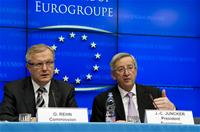 The European Stability Mechanism (ESM) will be able to lend its full capacity of 500 billion euro to troubled euro area member states. This became clear after the extended meeting of the Eurogroup with the finance ministers of non-euro area countries on February 14th.
The European Stability Mechanism (ESM) will be able to lend its full capacity of 500 billion euro to troubled euro area member states. This became clear after the extended meeting of the Eurogroup with the finance ministers of non-euro area countries on February 14th.
“The loan capacity of the European Stability Mechanism should be an effective capacity”, the President of the Eurogroup, Jean-Claude Juncker, said. The current bailout fund (EFSF) has 440 billion euro loan capacity, but it can effectively use only around 250 billion euro, because of the need to keep cash reserves to maintain its AAA credit rating. Separately, within the European Financial Stability Mechanism (EFSM), Member States may borrow up to 60 billion euro from the European Commission. So, although the total sum is as much as the current opportunities, practically the effective capacity of the Permanent Fund will be twice as large.
To the sum of 500 billion euro provided by the eurozone countries will be added  also the contributions of non-euro area countries wishing to participate in the ESM and the IMF. The exact value of its participation is not clear at this stage, but as EU Economic and Monetary Affairs Commissioner Olli Rehn explained, “the unwritten understanding with the IMF is that there can be 50 cents to one euro that the Europeans have themselves contributed to such operations as we have for instance in the cases of Greece and Ireland”.
also the contributions of non-euro area countries wishing to participate in the ESM and the IMF. The exact value of its participation is not clear at this stage, but as EU Economic and Monetary Affairs Commissioner Olli Rehn explained, “the unwritten understanding with the IMF is that there can be 50 cents to one euro that the Europeans have themselves contributed to such operations as we have for instance in the cases of Greece and Ireland”.
The ESM will come into force in 2013 based on amendments in the Treaty on the Functioning of the EU. It is expected at the European Council in late March the details of the future fund to be presented, as well as the concrete texts of the Treaty amendments. Previously, on March 11th, the leaders of the eurozone countries will hold a separate summit of theirs on these issues, where the Pact for competitiveness, proposed by France and Germany, will also be discussed.
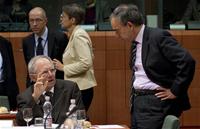 ”Nothing will be agreed until everything is agreed”- this comment of Mr Juncker summarised the lack of information about the activities of the current, temporary fund. Widening the scope of its activities is being discussed to enable it to buy government bonds instead of the ECB, and to grant short-term loans to troubled countries, for example if there is an urgent need to recapitalise banks. Similar recommendations were made by the influential Brussels think-tank Bruegel in a report on the debt crisis in the eurozone.
”Nothing will be agreed until everything is agreed”- this comment of Mr Juncker summarised the lack of information about the activities of the current, temporary fund. Widening the scope of its activities is being discussed to enable it to buy government bonds instead of the ECB, and to grant short-term loans to troubled countries, for example if there is an urgent need to recapitalise banks. Similar recommendations were made by the influential Brussels think-tank Bruegel in a report on the debt crisis in the eurozone.
It is also not clear whether the interest rates on loans to Greece and Ireland will be lowered. Jean-Claude Juncker refused to comment on the issue, although journalists pressed him with the fact that his colleague Olli Rehn had made a statement to that effect before the meeting. In terms of the Pact for Competitiveness, Mr Juncker said only that the topic was not discussed in details. “I do have my personal feelings on the subject and I will explain those in details at the European council on 11th of March”, he said and promised to be more specific at the press conference after that meeting.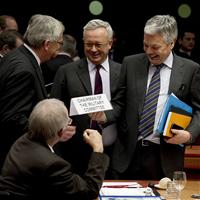
The EU finance ministers have supported the candidacy of Peter Praet (Belgium) as an executive board member of the European Central Bank to succeed Gertrude Tumpel-Gugerell, whose term of office expires on 31 May. Currently Mr Praet is a director of the Belgian National Bank. In response to a question Jean-Claude Juncker denied that the Belgian had been chosen instead of Slovak nominee Helena Kohutikova, because of the refusal of Slovakia to support the bailout for Greece last year.
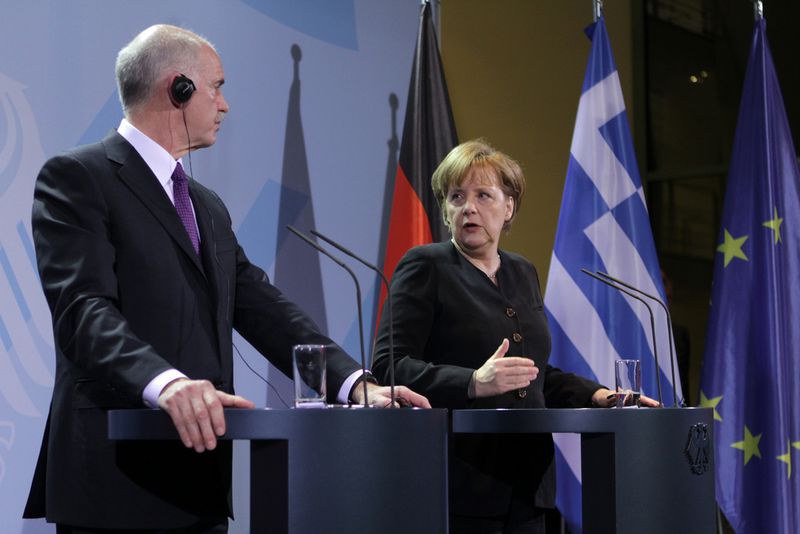 | © www.primeminister.gov.gr
| © www.primeminister.gov.gr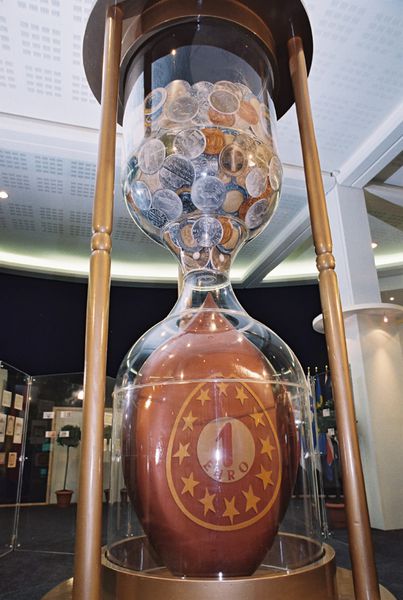 | © European Commission- Audiovisual Service
| © European Commission- Audiovisual Service | © European Commission- Audiovisual Service
| © European Commission- Audiovisual Service